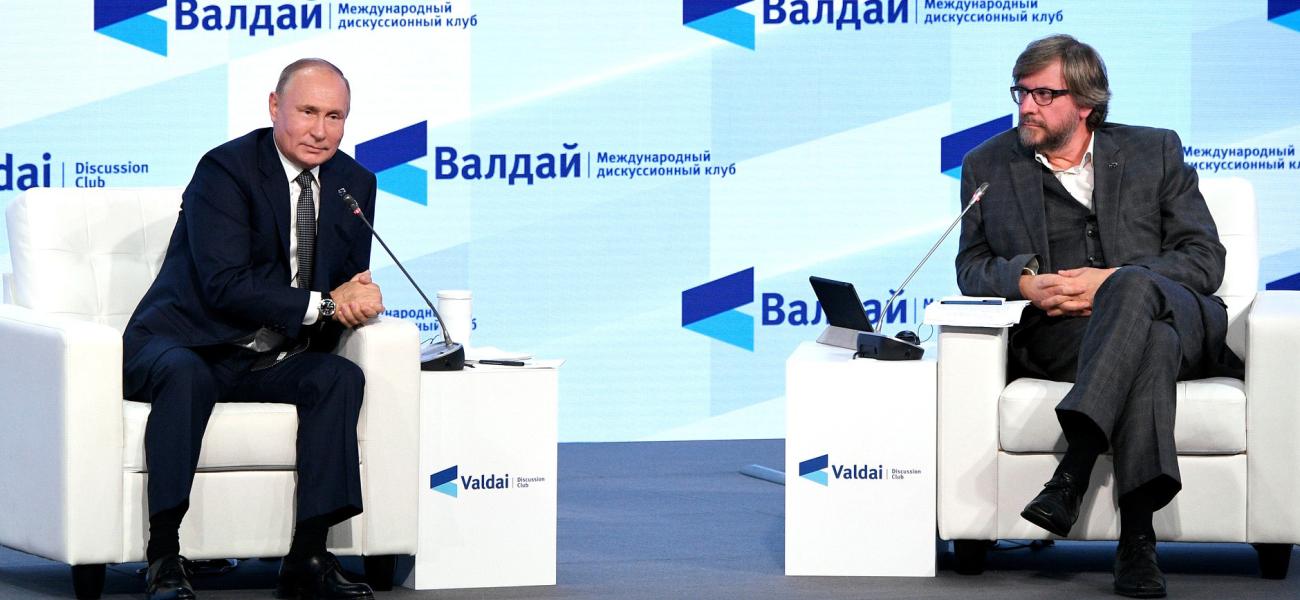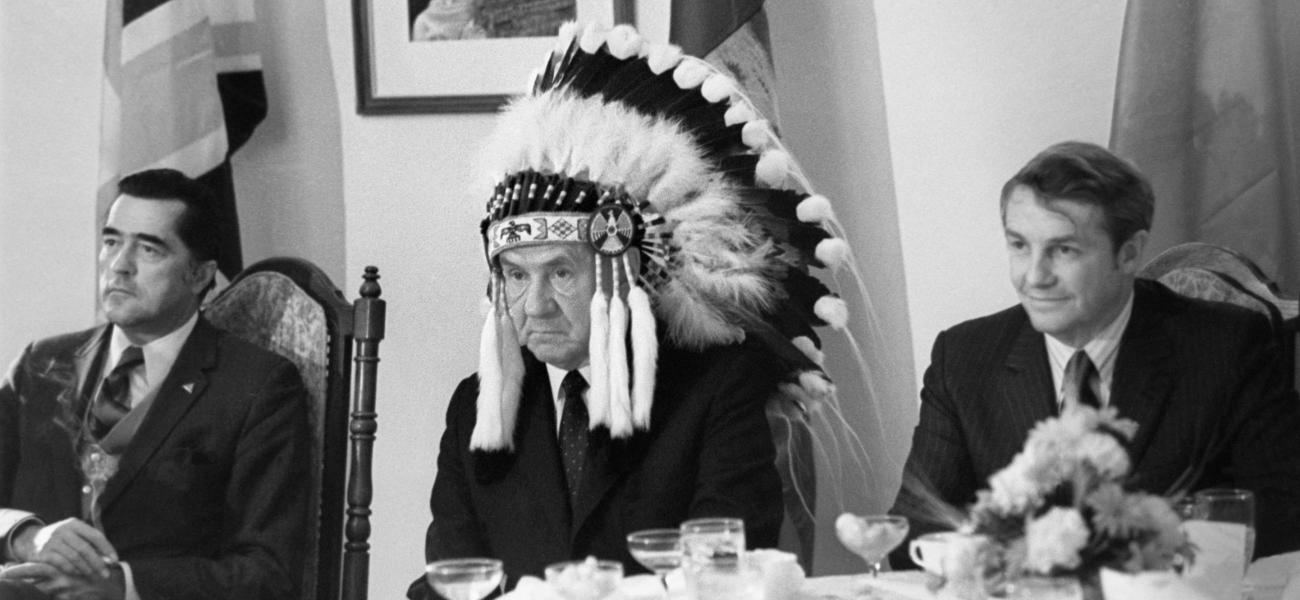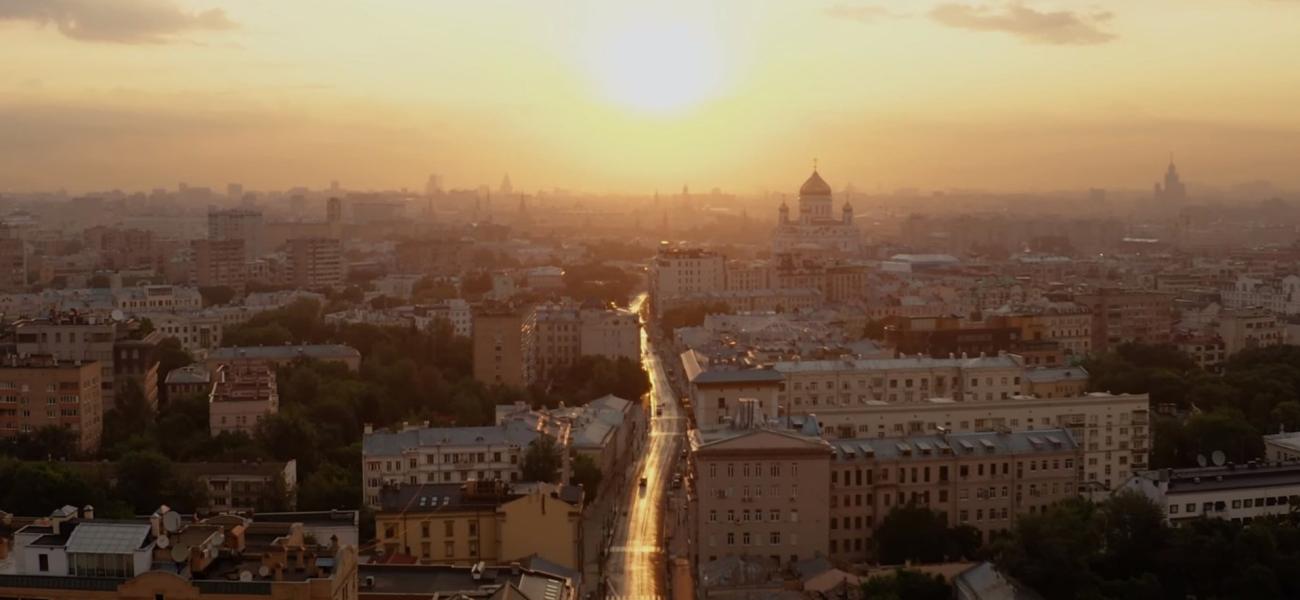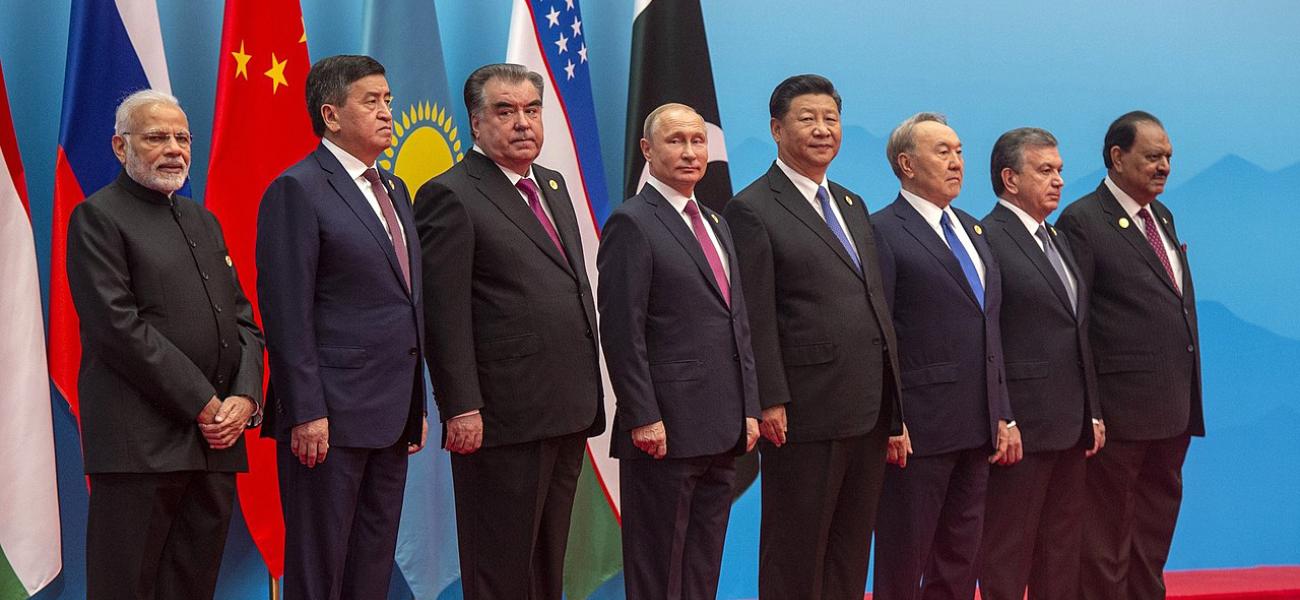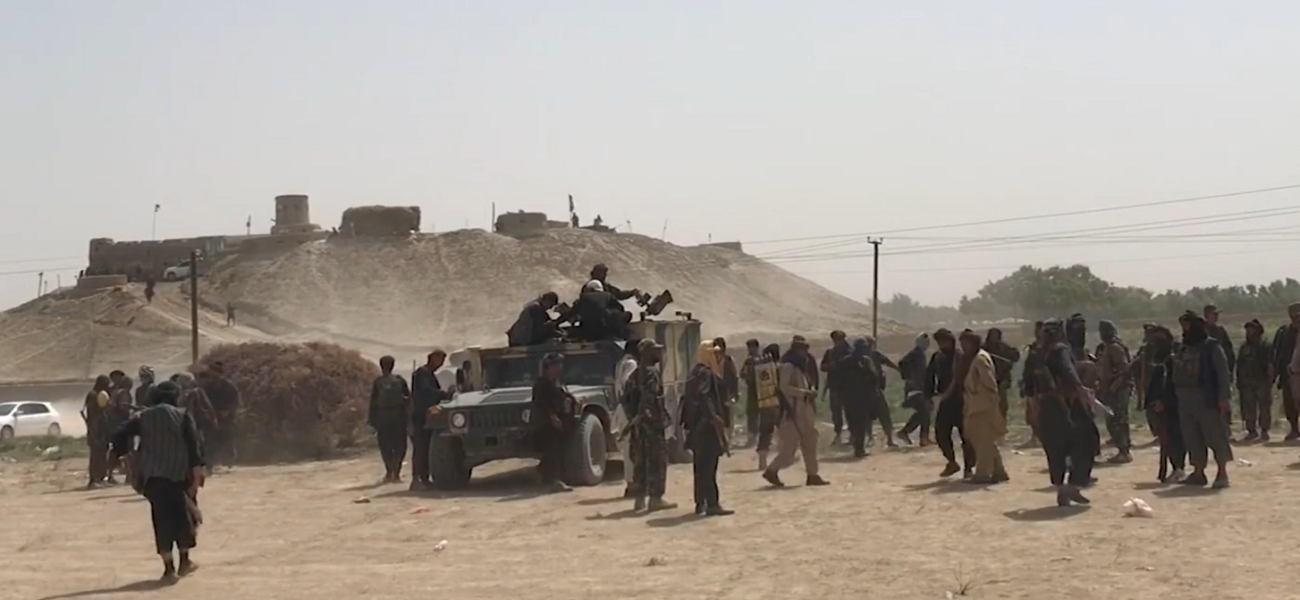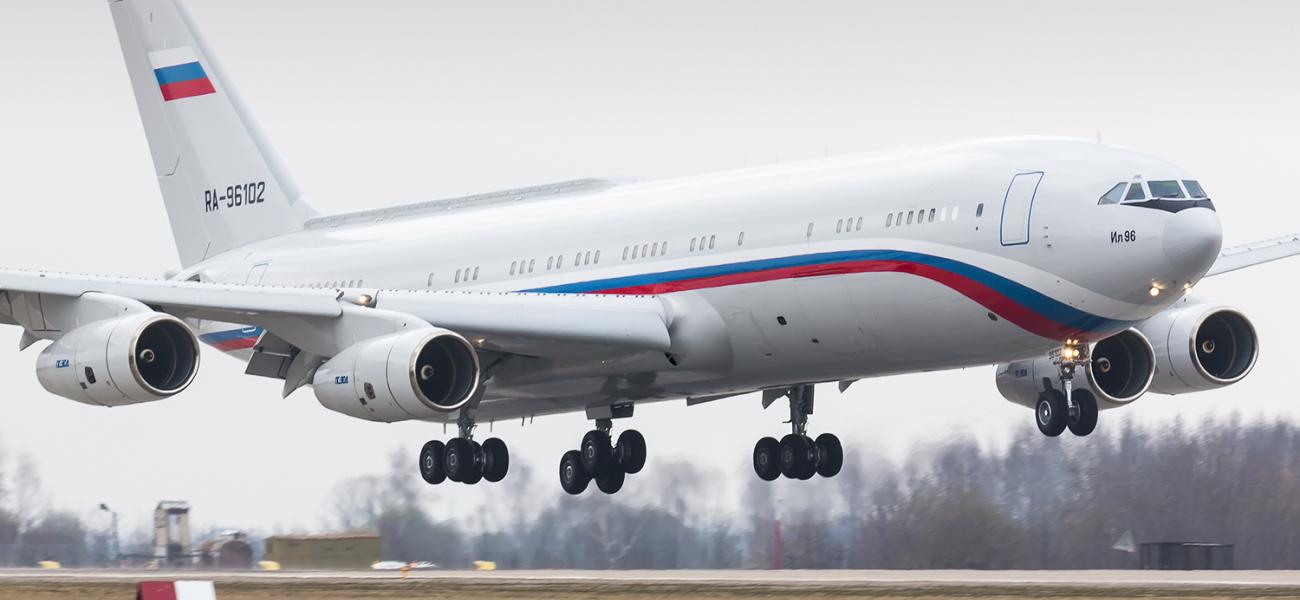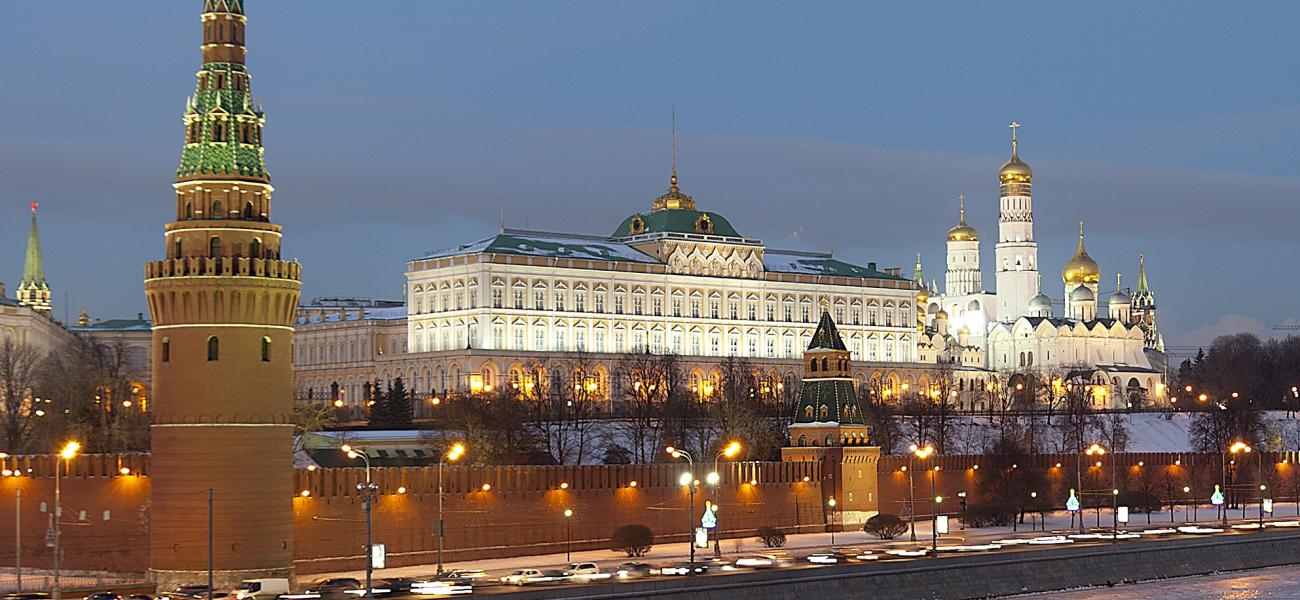This year’s session of the annual Valdai International Discussion Club was organized in hybrid fashion, with most participants attending in person but some (myself included) choosing to participate remotely. Indeed, the pictures from the conference hotel in Krasnaya Polyana, high in the mountains above Sochi, provided a sharp contrast with what was happening in the rest of Russia: While the participants sat unmasked next to each other in a crowded auditorium, the number of COVID-19 cases in the country was rising dramatically—so much so that President Vladimir Putin ordered Russians to take a week of paid leave and stay home in the hope that the pandemic would subside.
The Valdai Discussion Club began in 2004 as a project to bring foreign Russia experts to Russia to meet with Russian counterparts and also meet with senior officials, including Putin (and Dimitry Medvedev when he was president). It has evolved from a small group of international Russia experts discussing Russian affairs, into a large gathering in which Russia features as one of many global actors and whose format now resembles Davos more than the earlier, more intimate meetings. In the early years, Russian participants included politicians and journalists from the democratic opposition, but they are no longer invited, with the exception of Nobel Peace Prize winner and Novaya Gazeta editor Dimitry Muratov, who attended this year’s session.

